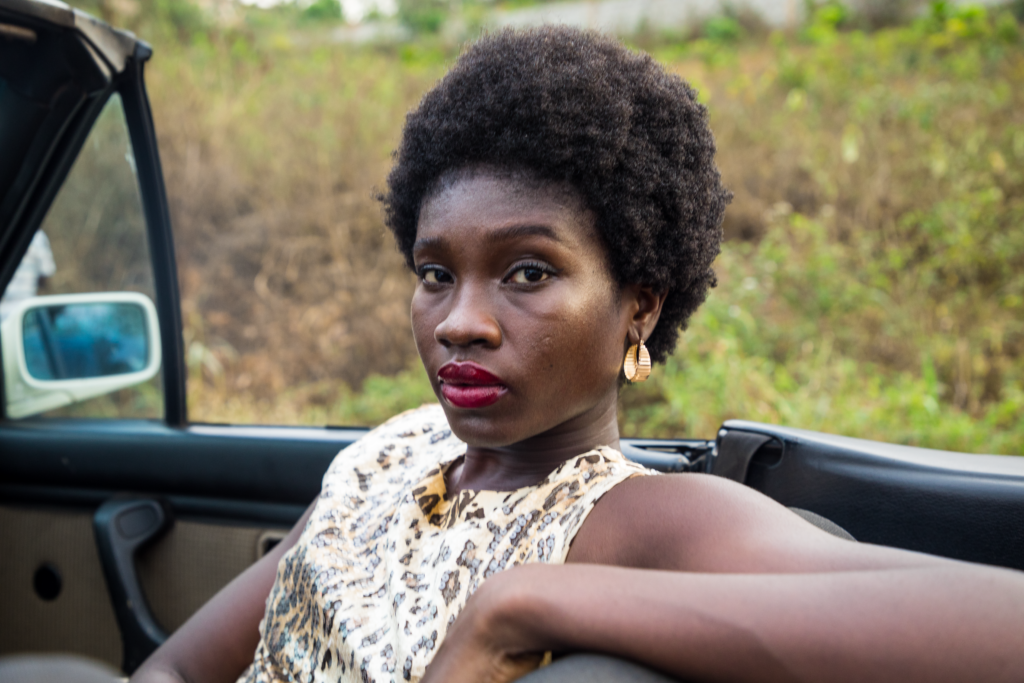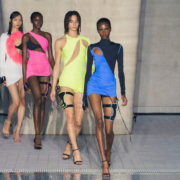Oumou Sangaré ‘s Latest Work Is A Seraphic Ode to African Womanhood and Heritage. [@OumouSangare]
![Oumou Sangaré ‘s Latest Work Is A Seraphic Ode to African Womanhood and Heritage. [@OumouSangare]](https://guap.co.uk/wp-content/uploads/2022/03/COVER-IMAGE-1-180x180.png)
Oumou Sangaré ‘s Wassulu Don’s radically seraphic visuals are remarkably created as an ode to strong womanhood and deeply-rooted African heritage.
Written by Contributing Editor, Olisa Jr.
Over the last three decades, Grammy Award-winning artist Oumou Sangaré has become a symbol of using music as an act of social justice and criticism, creating evocative, empowering songs and videos that often probe the struggles of women in society. “It was a deliberate choice to speak about women’s conditions. I couldn’t stay silent after seeing so many women suffer around me, starting with my mother’s pain. I promised myself that one day I would scream about this problem to the whole world,” Sangaré said in 2020, in an interview with OkayAfrica.

Sangaré says, “In my first album Moussolou, I spoke again about the abuses of polygamy, arranged marriage, and the inequalities Malian women endure. I always tried to show that we could do things based on our own decisions and to be autonomous.” It is an evident sentiment delineated throughout Wassulu Don, establishing an idiosyncratic visual canon that embodies the spirit of unapologetic, strong womanhood.
In Wassulu Don’s radically seraphic visuals, remarkably created as an ode to strong womanhood and deeply-rooted African heritage, you can feel the bittersweet essence of pride and joy in the women returning to their home. It’s like a prophetic vision, narrating an intimate story of self-renewal and acceptance to its core. “I envisioned poetic images like memories that are not tied to a specific time or place, rather focus on the feeling,” said director Justyna Obasi. In this same thematic scope, Sangaré’s adherence to authentically portraying the reality of the African tradition while juxtaposing past and contemporary layers offers the viewers an unprecedented level of penetrating insight and perspective about the lives of African women.

In this way, Wassulu Don’s unique iconography nostalgically manifests a lush mirage of the monumental life and legacy of visionary African image-makers like Diop Mambety, Ousmane Sembene and Abderrahmane Sissako. There is a vivid understanding that the artist’s creation should neither hide nor embellish reality. In addition, operating within an honest and enlightening system of thought, capturing the lives of strong female characters viewed through ten different vignettes, Sangaré’s new music video portrays the abounding possibility of beautiful documentation and cultural commentary through film.
The music video begins with the soul of homecoming as the lens is focused on a young woman in a panache green gown, and trailing behind her, a young man carrying her bags as they walk through a field of dry grass. Her eyes are set ahead and filled with determination, her walk seemingly in an endearing motion. And then, seconds later, the camera shifts vignettes to a young woman sitting alone in her home as she licks the food off her fingers, staring into the corner of the room.

These few moments, juxtaposing in their visual representations but rooted in the same contextual narrative, render themselves due to Sangaré’s elegant cross-pollination of perception and interpretation. She uses her music video as a vessel to portray the diverseness of cultural heritage and womanhood by uplifting her characters to a spectacle, existing in a realm of their own.
Wassulu Don is a sartorial piece of conscious art that acutely uses the lives of strong women and the emotionally-charged depiction of home and intimate, sororal love to survey the social reality of young African women in society. The two minute and forty-eight-second sequence provides a fundamental glimpse into Oumou Sangaré’s daringly cathartic retrospective, which has allowed her to reshape and recreate the dynamics of power and history that had, for a long time, left women powerless among their counterparts. In-essence, a true masterpiece.

Written by Contributing Editor, Olisa Jr.
Check out the GUAP Arts & Culture section, to discover new art, film, and creative individuals.

